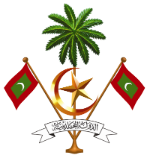The Embassy provides the following notary/authentication services:
– Attest documents as true copy of the originals.
– Issue authentication letters verifying the details of a document written in Dhivehi.
– Attest legal documents to be used in the Maldives. For example, a power of attorney or agreement to be used in a Maldivian court.
– Issue verification letters such as verification of an individual’s relationship with his/her family members.
Please contact the Embassy if you need any of the services mentioned above.
